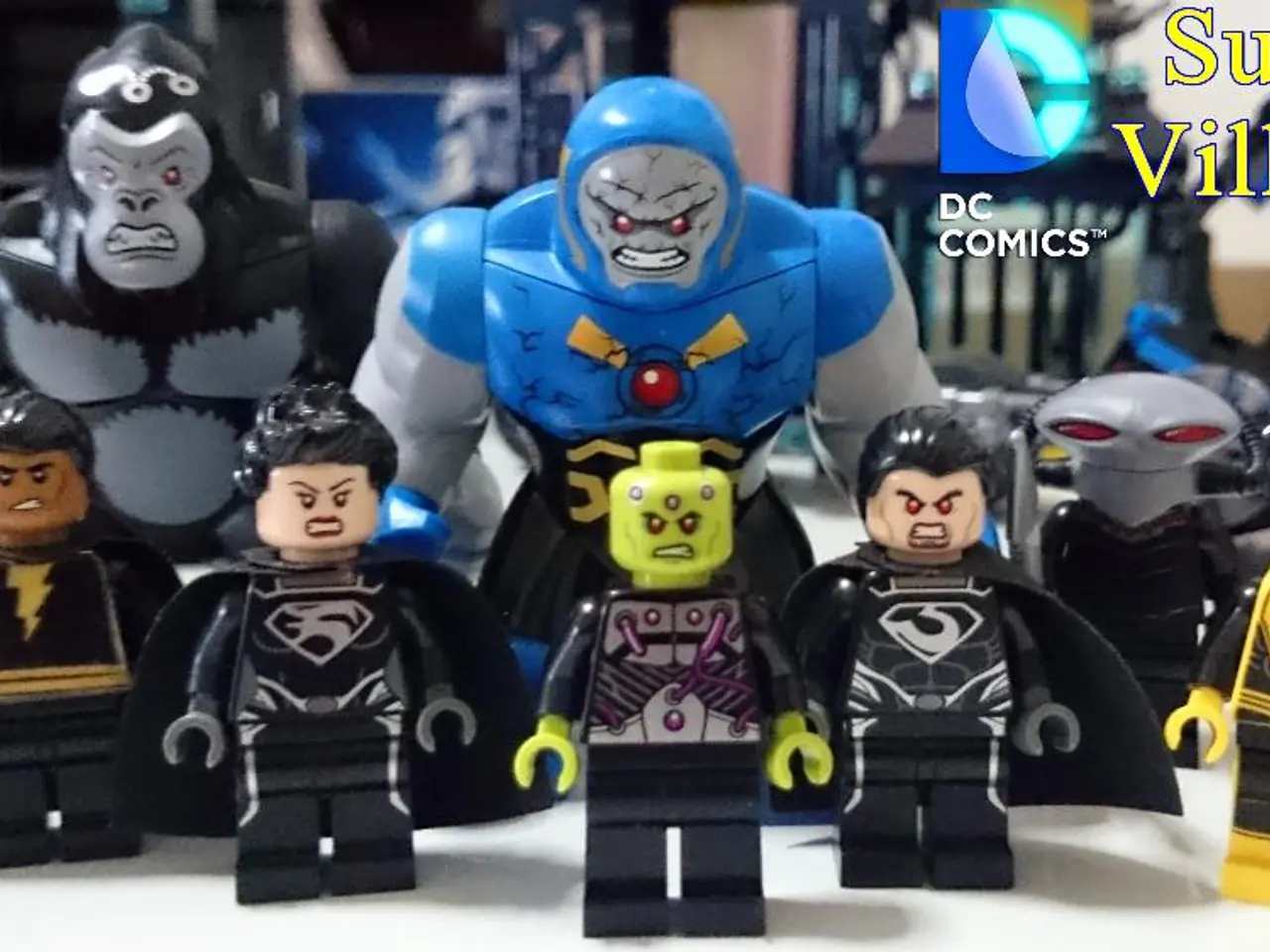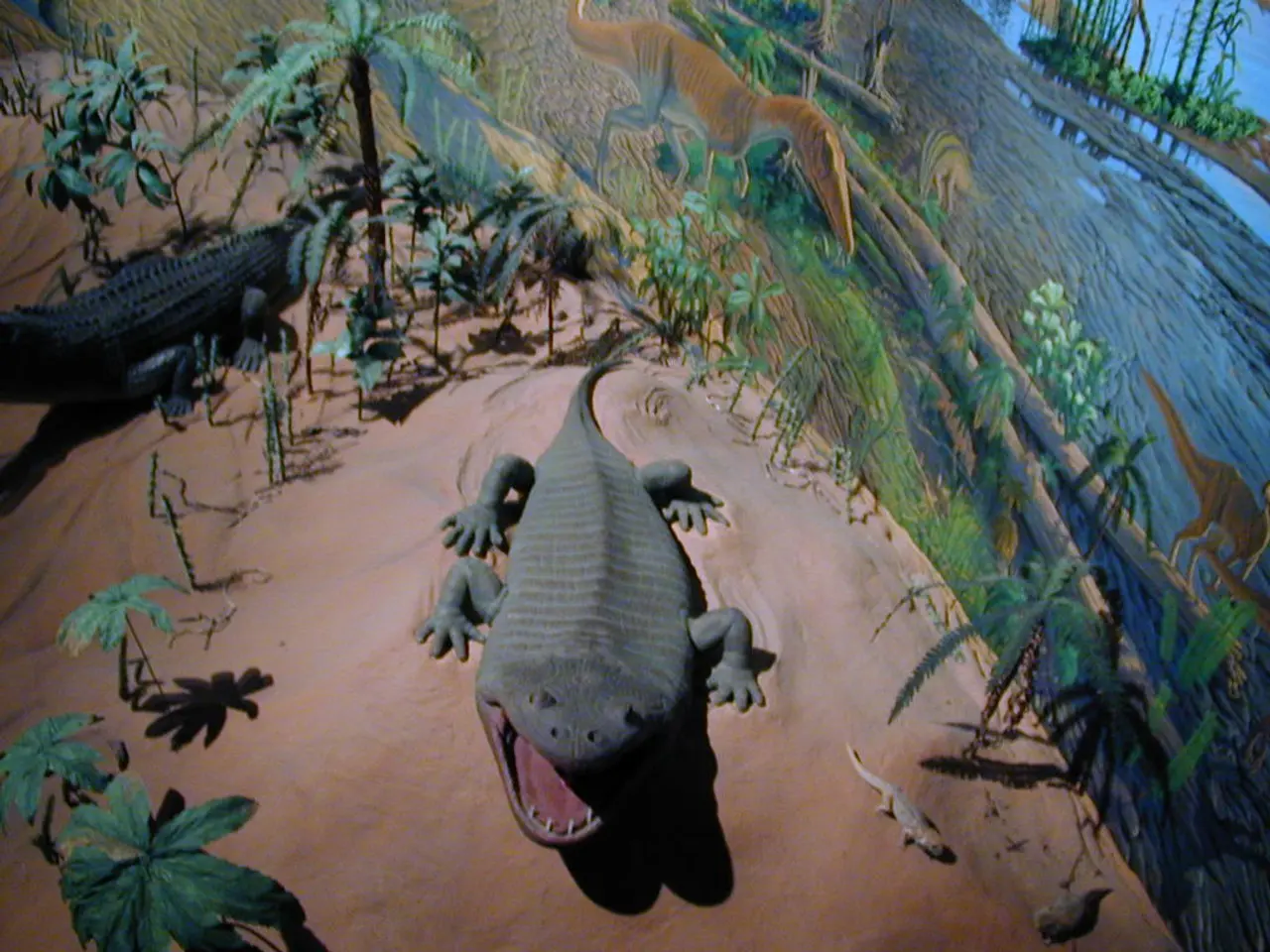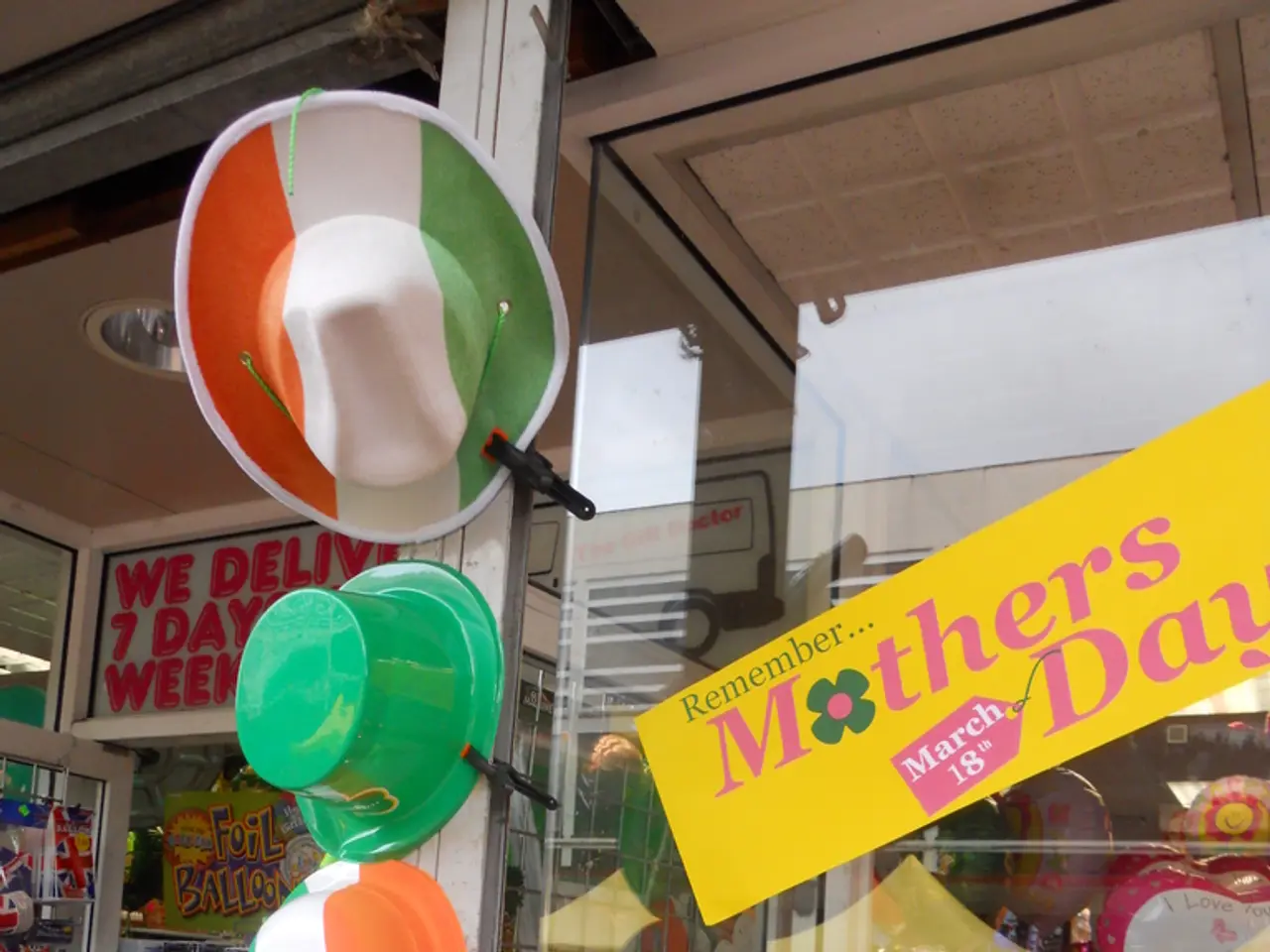Q2 Toy Sales Suffer Due to Tariff Uncertainty as Reported by Hasbro and Mattel
Hasbro and Mattel's Diversification Strategies Boost Earnings Amid Traditional Toy Sales Decline
In the ever-evolving world of toys, two giants – Hasbro and Mattel – are adapting to changing consumer preferences by diversifying their revenue sources beyond traditional toys. This shift is particularly noticeable in the realm of digital gaming, entertainment content, and sustainability initiatives.
Hasbro's Digital Gaming Success
Hasbro's growth is primarily driven by its Wizards of the Coast segment, which includes Magic: The Gathering and other digital gaming initiatives. This segment saw a 28% revenue increase year-to-date in 2025, offsetting a 10% decline in traditional Consumer Products. Magic: The Gathering's success, including the record-breaking Final Fantasy set, contributed notably, with the Wizards and Digital Gaming segment achieving a 16% gain in Q2 2025. Monopoly Go, a digital spin-off, also added revenue ($44M).
Despite a 1% revenue dip overall in Q2 2025 due to Consumer Products softness and entertainment revenue decline, Hasbro’s earnings beat expectations with an EPS of $1.30 vs. $0.78 forecast, and the company raised its full-year revenue and EBITDA guidance based on the strength of digital gaming and licensing. CEO Chris Cox highlighted the sustainable growth potential of digital gaming, saying "Magic players just never stop playing" and forecasting continued growth driven by digital and licensing opportunities.
Mattel's Diversification Efforts
Mattel is pivoting toward digital engagement and entertainment partnerships, such as the upcoming Masters of the Universe movie and new Hot Wheels and Barbie content on Netflix. Though digital games aren’t yet a major revenue source, Mattel views them as a scalable, high-margin growth area and is trying to catch up with Hasbro’s digital gaming success.
Sustainability efforts, including the Mattel PlayBack toy recycling program and carbon-neutral product lines like Matchbox Tesla Roadster, aim to differentiate Mattel’s brand and tap into the growing consumer demand for eco-conscious products (78% of parents reportedly prioritize this).
In Q2 2025, Mattel’s revenue rose modestly by 2% to $1.646 billion, reflecting early benefits of its strategic turnaround but also ongoing challenges such as tariffs, macroeconomic headwinds, and the nascent stage of its digital and sustainability initiatives. Mattel's cost savings target was raised to $80 million, indicating ongoing operational pressure despite strategic moves.
Summary
Both companies show that digital gaming and entertainment are crucial growth engines that compensate for declines in traditional toy sales. Hasbro’s success in these areas has led to improved earnings and upgraded guidance, signaling strong near-term financial benefits. Mattel’s diversification is earlier in impact but aligns with trends in consumer preferences (e.g., sustainability), positioning it for potential medium-term revenue growth.
Risks remain from macroeconomic challenges, tariffs, and the need to scale digital revenues beyond brand visibility. However, the diversification efforts of Hasbro and Mattel are transforming revenue mix and supporting earnings resilience amid challenges in traditional toy markets.
Notable Developments
- Hasbro's purchase of gaming publisher Wizards of the Coast in 1999 has proven beneficial, as the Wizards of the Coast and digital gaming business had revenue growth of 16% during the second quarter.
- Mattel is working on a Barbie animated film with the company that created Minions, Despicable Me 3, and the Super Mario Bros. movie.
- Mattel is looking for growth beyond traditional toys by leaning into its entertainment division and forming Mattel Studios.
- Mattel suffered a greater than expected revenue drop of 6% during the second quarter.
- Mattel has partnered with OpenAI to use artificial intelligence tools to create new ways to interact with Mattel toy characters.
- The most recent Magic: The Gathering release, based on the Final Fantasy Japanese science fantasy video games, achieved $200 million in revenue in one day.
- The decrease in sales was due to delayed ordering by retailers concerned about potential price increases.
- Mattel reported growth in its American Girl brand and expects Hot Wheels, new dolls inspired by the Wicked for Good movie, updates to the Monster High brand, and other product lines to boost sales for the holidays.
- Mattel plans to release one to two films per year starting in 2026, with Masters of the Universe and Matchbox being the first.
- The success of Hasbro's digital gaming segment, particularly Magic: The Gathering, contributed significantly to a 16% increase in Q2 2025 earnings for the Wizards of the Coast segment.
- Mattel is expanding into digital engagement and entertainment partnerships, such as the upcoming Masters of the Universe movie, new Hot Wheels and Barbie content on Netflix, and the formation of Mattel Studios.
- Despite a 2% rise in Q2 2025 revenue for Mattel, ongoing challenges like tariffs, macroeconomic headwinds, and the early stage of its digital and sustainability initiatives remain.
- In the face of declines in traditional toy sales, the diversification strategies of Hasbro and Mattel into digital gaming, entertainment content, and sustainability initiatives have proven beneficial for their financial resilience.




